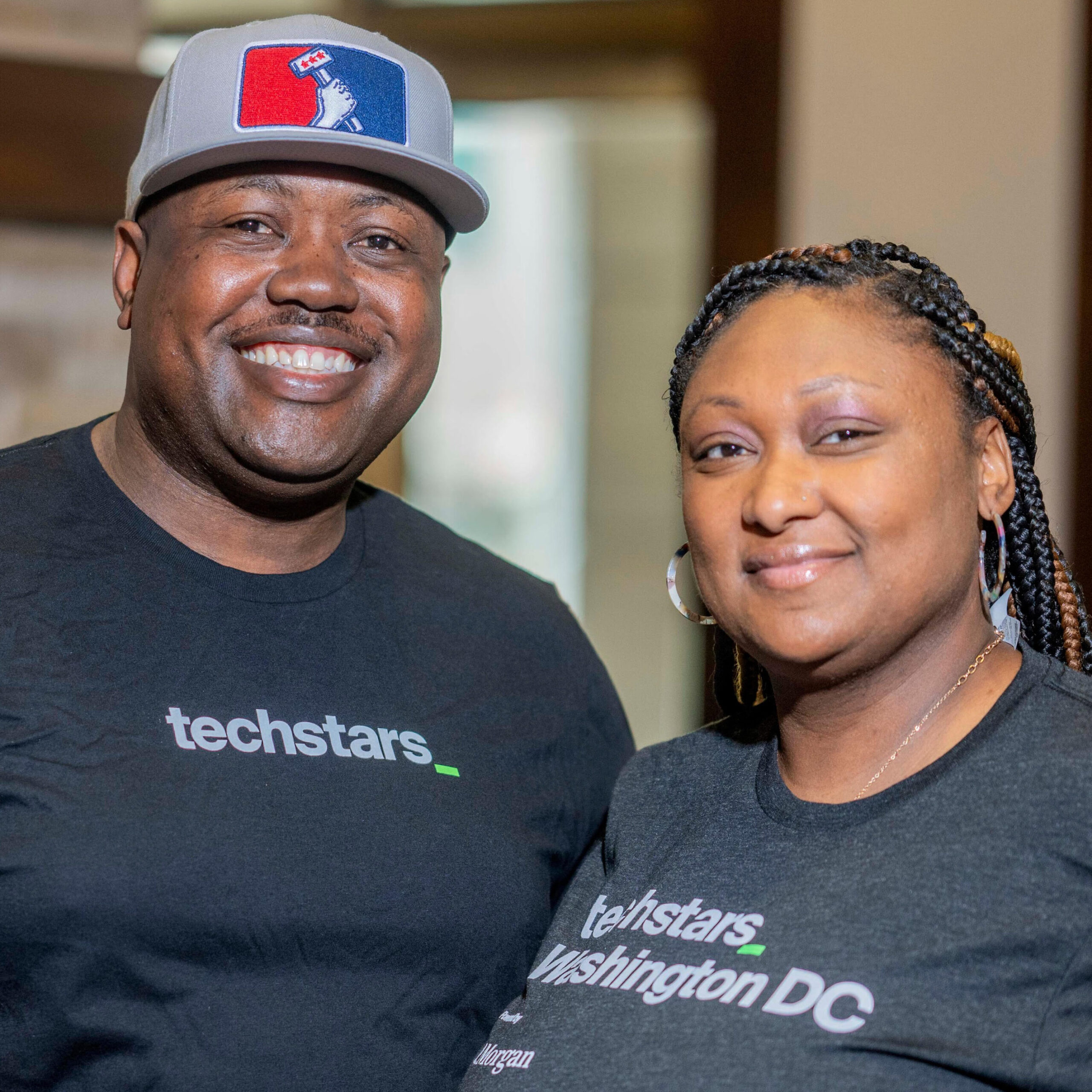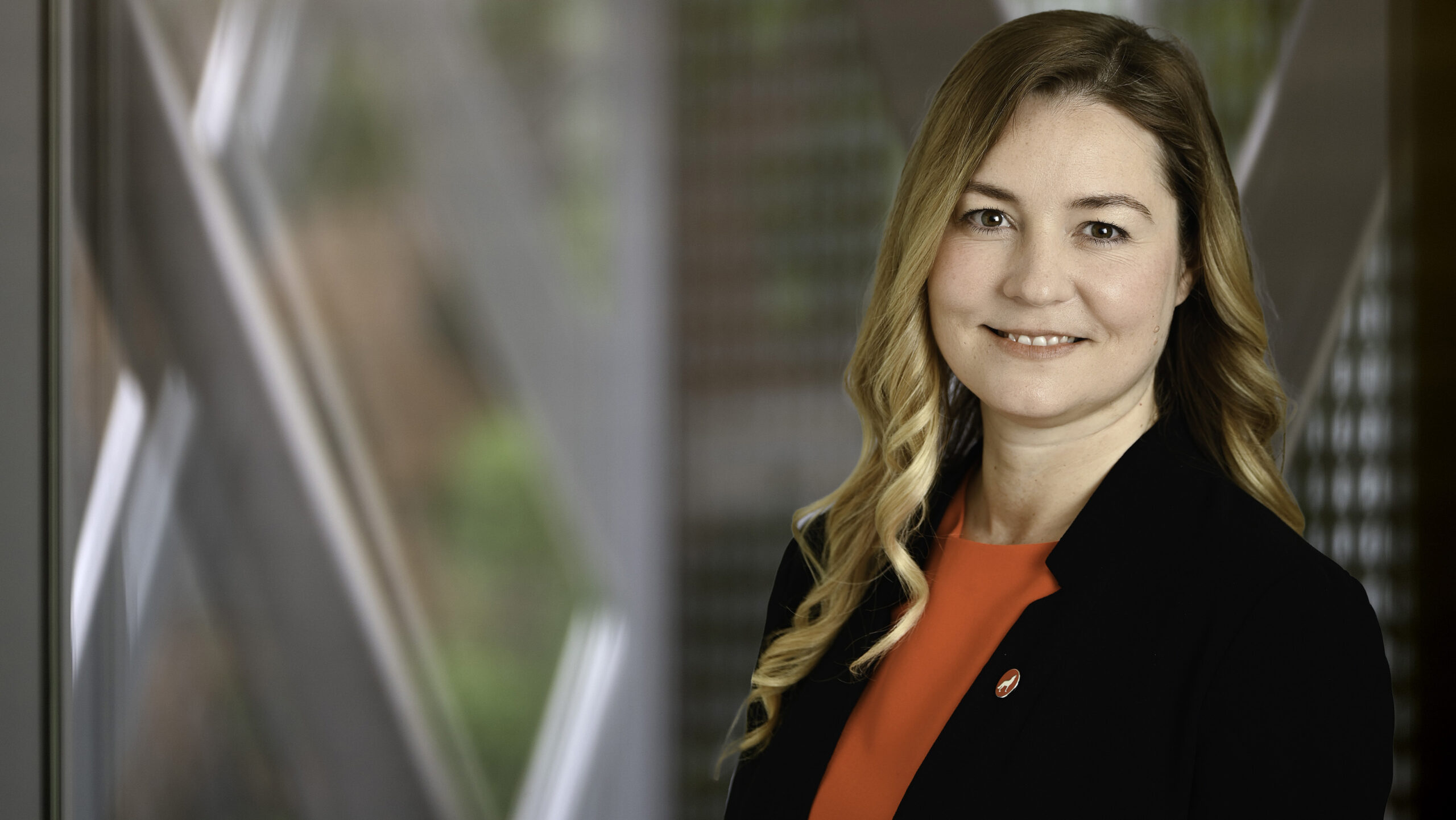By Amy Parker and Matt Simpson
What if an app could get more U.S. Navy ships back to sea sooner?
The co-founder of startup company Washington’s Hammer knows just how hard it can be to get an aircraft carrier, battleship or destroyer back in sailing shape. That’s why the NC State University College of Education grad decided to launch a tech company dedicated to developing a maritime collaboration platform.
The startup’s software solution — Keelblok — seeks to streamline naval ship repair by making it easier for mechanics to make decisions, track progress and communicate updates. Keelblok was commissioned for beta testing on a naval aircraft carrier in 2023.
“It all started with NC State,” says Valeni Felton, who co-founded Washington’s Hammer with his wife Chana Ruiz-Felton while earning his master’s of education in training and development at NC State.
The husband-and-wife team launched Washington’s Hammer in 2021, shortly after completing the National Science Foundation’s I-Corps training program at NC State. The NSF I-Corps program, managed at NC State by the Office of Research Commercialization, aims to help researchers transition their ideas and inventions into the marketplace through customer discovery and market research.
In December, the startup successfully completed the Techstars Washington DC Powered by J.P. Morgan Accelerator; the company was one of only 24 in the country selected to participate in the 13-week program, which provides funding, startup education and mentorship connections. Washington’s Hammer received $120,000 in funding from the program and says it has now established itself in an entrepreneurial network that will support its continued growth.
How They Got Here
Felton started his career in 2009 as an apprentice in the naval ship repair industry. During his time repairing ships, he saw firsthand the growing shortage of industrial workers in the United States. Recognizing that he wouldn’t be where he is now without the talented mechanics who trained him, Felton foresaw that a lack of experienced laborers to teach the next generation of naval workers could one day impact national security.
Washington’s Hammer envisions itself as critical to our country’s security and defense — and the company’s name reflects that vision.
“Everyone has a hammer in their house. It is the essential tool,” Felton says, “We see ourselves as being that essential, that valuable to our nation.”
When Felton first got to NC State, he had designs of starting his own ship repair service company. But he soon decided to pivot to creating a technology-based company — because he believed it could scale faster and make a broader impact across the industry.

In 2021, Felton and Ruiz-Felton applied to NC State’s SWEAT Equity Program, a software development program designed to help turn innovative ideas from the NC State community into new companies. With direct knowledge of the challenges faced by the Navy and federal contractors that most often cause project delays, Felton submitted his idea for a software application to streamline ship maintenance — which would come to be known as Keelblok.
As part of their time in SWEAT, Felton and Ruiz-Felton completed the NSF I-Corps program, which helped them engage with prospective customers and partners. By the end of the SWEAT Equity Program, with some seed funding and guidance from the Office of Research Commercialization, the team had developed a clickable prototype it could use for pitches and client demos. With a prototype in hand, Felton and Ruiz-Felton ultimately decided to form Washington’s Hammer to commercialize Keelblok.
Shortly after its formation two years ago, the company secured a competitive NC IDEA Micro grant; in 2022, Washington’s Hammer also completed the Council for Entrepreneurial Development’s twelve-week GRO Incubator Program for early-stage startups.
Where They Are Now
Washington’s Hammer officially launched Keelblok in 2023.
Felton describes it as a collaborative platform not built for the C-suite but specifically for deck-plate mechanics.
“SaaS products [in the ship repair industry] are built for upper management…it’s just data collection that sits dormant,” Felton said. “We want to take that data through Keelblok and utilize it to empower the people who are actually performing the work.”
Keelblok has already been beta-tested aboard the USS George Washington. The platform was commissioned last year to support two separate $2 million projects on the Nimitz-class nuclear-powered aircraft carrier.
Through data aggregation, Keelblok aims to identify the best repair methods and the optimal tools to use. The goals are twofold: enable efficient maintenance and improve information sharing between the Navy and federal contractors. The company also wants Keelblok to bring mechanics the added benefit of being able to track their professional development.
“More attention needs to be brought to blue-collar industrial work,” Felton says. “There are so many products and applications and platforms meant for white-collar labor.” Yet, there are also a lot of blue-collar occupations that “aren’t going anywhere.”
“You’re not getting rid of plumbers, carpenters, welders — but we neglect them,” Felton says. “We’re not doing anything to build their skills up.”
The company hopes that if its platform becomes broadly utilized throughout the Navy, it can also turn into a tool that’s widely used by workers across the industry to grow in their careers.
Washington’s Hammer looks to deepen its partnership with the Navy in 2024 and is exploring collaboration opportunities on the West Coast, while also continuing to develop relationships on the East Coast with larger Department of Defense contractors. Additionally, the startup sees expansion opportunities within the private sector through the support of “mom-and-pop” shipyards, Felton says.
Felton has continued to engage with NC State and the Office of Research Commercialization (ORC), which has provided design resources and connections to advisors for Washington’s Hammer as it has grown from a graduate student’s idea to a company with a fully realized software product.
Current NC State students who are interested in learning more about the services and support ORC has to offer should contact a member of the Office of Research Commercialization’s New Ventures Team.
As for Felton’s advice to students considering forming their own company: “Experience life.”
“Go out there and get real-world experience. Study abroad or donate your time to an organization,” Felton says.
Then, he says, let those experiences inform the next great idea worth pursuing.
- Categories:



